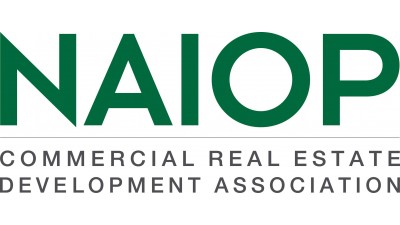The Rise Of ‘Office As A Service’ Might Be Here Sooner Than You Think

The future of office space will be about more than square footage or open-office floor plans. Rather, office managers will have to focus on creating an attractive user experience, from free coffee to lounge space, for every occupant. In the U.S., around 1.2 million employees worked in a coworking space last year. With flexible office space now the main driver of office occupancy growth, many landlords have started to convert conventional office space into coworking and flexible space.
It is a change that former property developer, entrepreneur and consultant Antony Slumbers believes will reshape how commercial real estate companies manage and market their office properties. For Slumbers, the age of simply leasing out an office space and keeping the building lights on is over. Owners must now either learn how to leverage data and collaborate with office occupants or partner with a brand providing that service.
“Real estate is no longer a bond-like industry where long-term leases of office space lead to long-term returns on investment,” Slumbers said. “The world has turned from having one customer to whom you send a rent invoice four times a year, to your customer being every single person in the building. They have to be sold on the user experience that you provide for them. It’s an entirely different mindset.”
A combination of improving technology and offering shorter lease terms has helped fuel the transformation of office space from a static product to a service-focused industry. While office occupants of the past relied on stationary equipment like desktop computers, file cabinets and landline phones to complete tasks, mobile phones and laptops have given employees an opportunity to choose where and how they work. Portable technology has also transformed offices from cubicle farms to community gathering spaces, where employees focus on more collaborative work that requires social activity and innovative thinking.
“It raises the importance of the operator of a space dramatically,” Slumbers said. “This is an interesting opportunity for property management companies to start providing a whole range of skills, where they are the curators of the space. They need to become the people who understand the technology and the data and can put together environments that suit people.”

A focus on services has also grown as office leasing periods have shrunk. In London, where Slumbers is based, leases now last seven years on average. Shorter leasing terms are common among younger companies and tech firms, which have more volatile growth periods. When leases are up, a majority of occupants leave that space, Slumbers said, hinting at a mismatch between the needs of the occupier and what the office supplier can provide.
Coworking giants like WeWork have built entire brands based on the needs of its members, many of whom are smaller tenants who would not have the space or skill set to design spaces around individual employee needs. Having the ability to adapt to office trends and provide the appropriate amenities has shifted the value chain in office leasing.
“If you are a landlord, and you have a large space, and you find that your customers actually want flexible space to some description, what do you do?” Slumbers said. “Well, you could just call up Adam Neumann and ask him to build a WeWork in the whole building, which many people do. But that is going to become unattractive because landlords will find that they are leaving so much money on the table.”
The shift to data-driven property management will be a sea change for many traditional real estate companies, which must now do more than ensure the lights run, the plumbing works and the elevators are operational. The individual comfort and wellness of each occupant must now be monitored, along with space usage, to determine how to optimize the space and encourage tenant retention. For some office landlords, the solution might be to partner with third-party flexible office space providers, rather than hand over the keys to a larger company.
“What you are moving to is this new breed of company where they have the traditional real estate skills but also strong tech skills,” Slumber said. “How do you put together an Internet of Things? How do you manage employee wellness? You need to understand data.”
Slumbers will be the keynote speaker at NAIOP’s and GWA’s FlexOffice 2018 event from Sept. 12-14 in Austin, Texas.
This feature was produced in collaboration between Bisnow Branded Content and NAIOP. Bisnow news staff was not involved in the production of this content.

